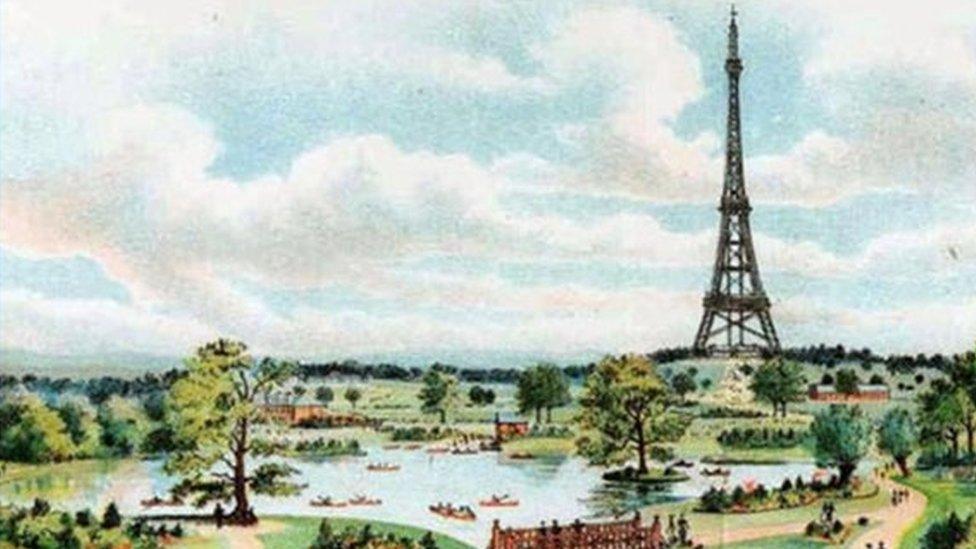Historic hidden folly uncovered in Birmingham garden
- Published
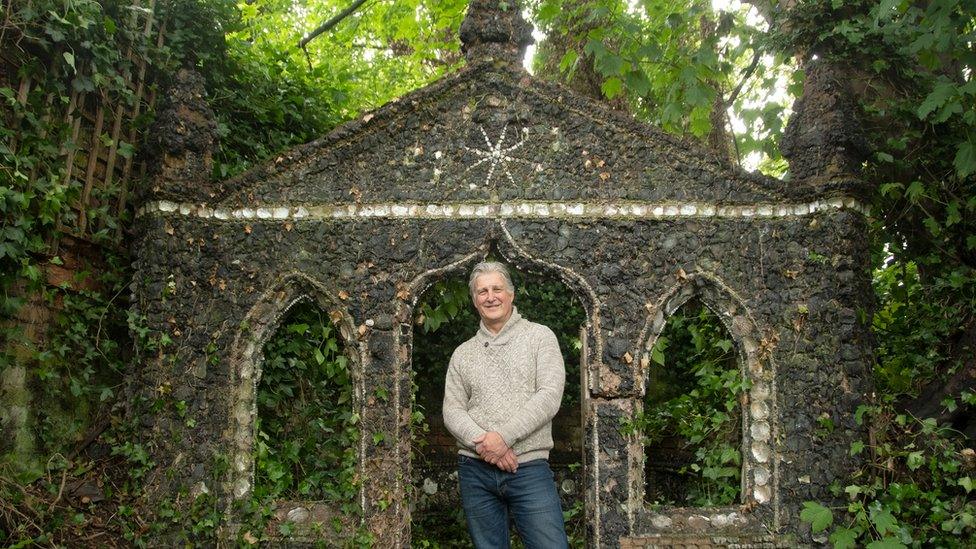
Jonathan Bostock began his social media quest for information about the building while watching a Euro 2020 game on Saturday
A folly has been revealed in all its glory at the bottom of a suburban garden after the homeowner decided to tidy it up before selling his house.
Jonathan Bostock always knew of the existence of the structure, which was largely hidden in undergrowth at his home in Edgbaston, Birmingham.
Mr Bostock's pruning shears have now enabled the folly, thought to date from the 18th Century, to finally emerge.
Follies are decorative garden features mainly built for aesthetic pleasure.
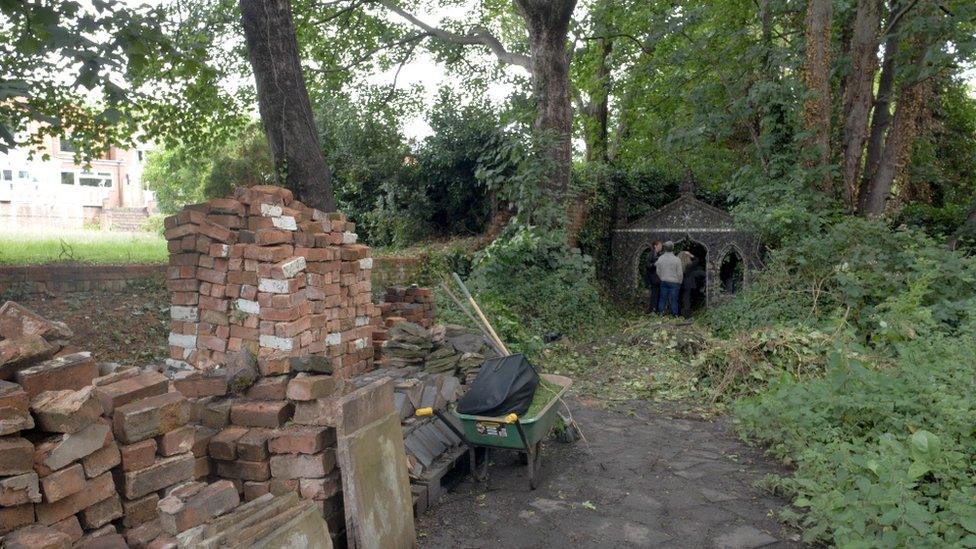
A folly was a building thats only purpose was decoration, an eye-catcher for the rich to admire from their property
National Trust senior gardens adviser Pam Smith visited the building on Tuesday and said: "I've been in Birmingham 24 years and I think this is one of my best days.
"It's beautiful. Everyone loves discovering something that has been lost and this has been lost for quite a while.
"It just a privilege to be some of the early people to see it in this state, because sometimes when things get restored, they lost a bit of romanticism."
The adviser believes the folly dates back to the 1700s, but further investigation is needed as the art of creating follies continued into and after the Victorian era.
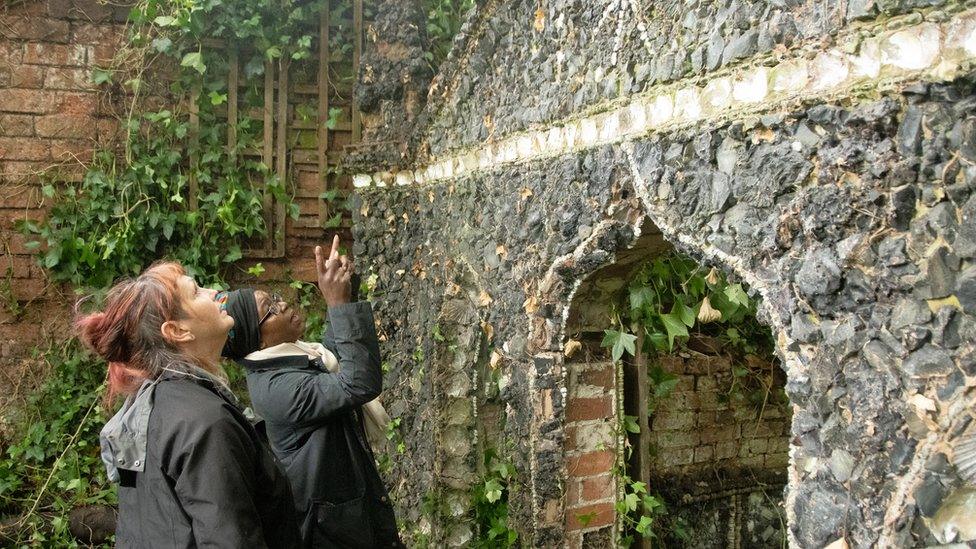
Not meant for living or working in, they were built for fun and were often frivolous constructions built at great expense to show off to neighbours and visitors
Mr Bostock has lived at the property for 25 years, but is selling with his children now grown up.
"I've known this building has been here, but to be honest I've let it go a bit in terms of the foliage around it - the ivy's been growing over it," he said.
"We're selling, so I thought it's time to clear up the garden. Started work, started to pull off the ivy and thought 'come on, this is really interesting'.
"We put something out on Twitter and said 'does anyone know what this thing is, when is it dated, and how important it is?
"And we were absolutely gobsmacked by the level of interest."
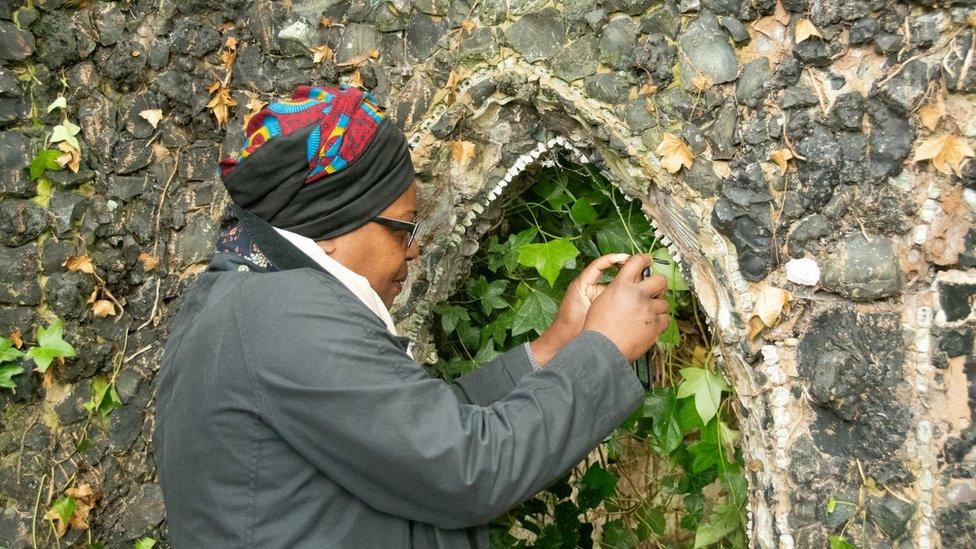
Garden writer and historian Advolly Richmond admitted she and Pam Smith "squealed" when they first saw the folly
Garden historian Advolly Richmond also visited the building on Tuesday. "It's obviously a shell house as opposed to a grotto, because grottos tend to be more subterranean," she said.
"It's absolutely gorgeous inside. A lot of the teeth are still intact, and the bones are just pristine."
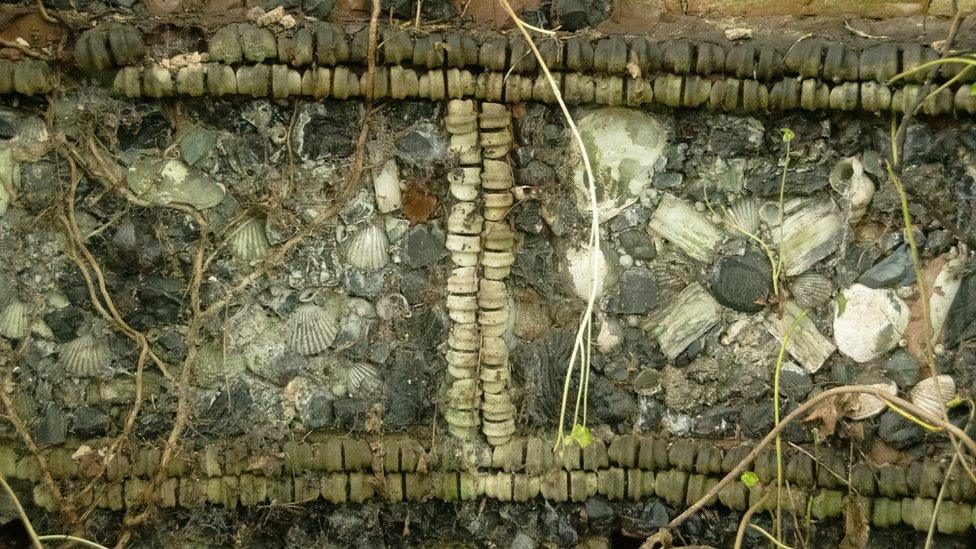
The building was decorated with shells, bones and teeth and they remain in excellent condition even though the building was probably built from the mid 1700s
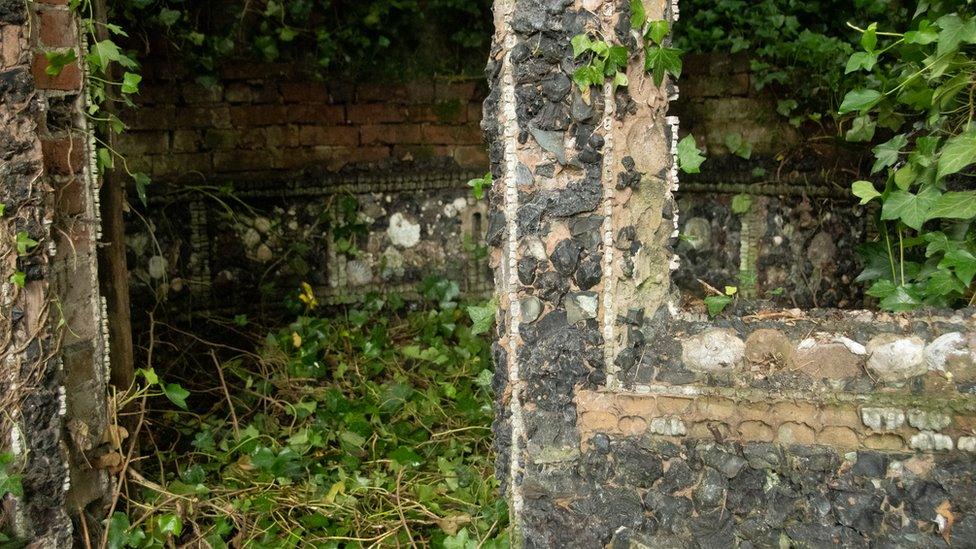
The folly is slowly being reclaimed from nature at the house in Edgbaston, Birmingham

Follow BBC West Midlands on Facebook, external, Twitter, external and Instagram, external. Send your story ideas to: newsonline.westmidlands@bbc.co.uk, external
Related topics
- Published5 June 2021
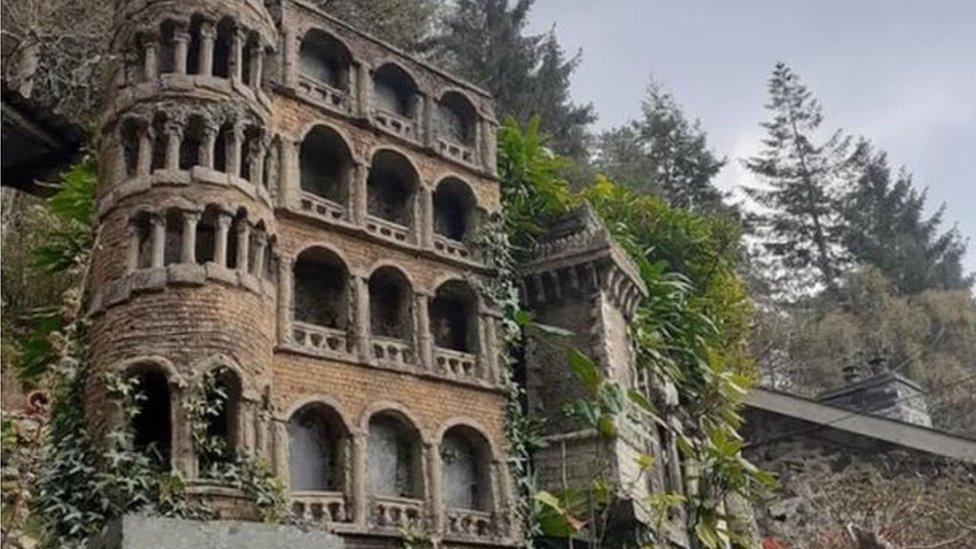
- Published30 April 2021

- Published17 May 2020
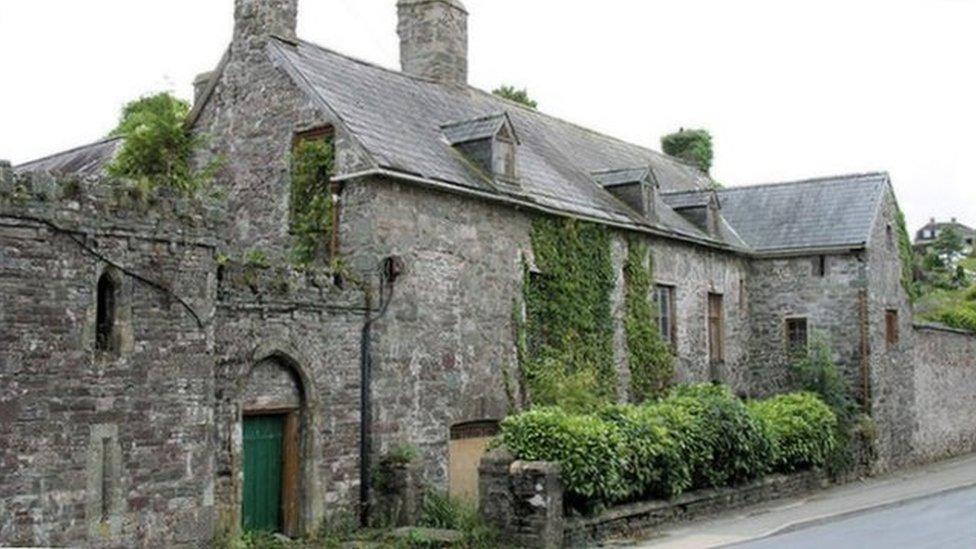
- Published26 December 2019
